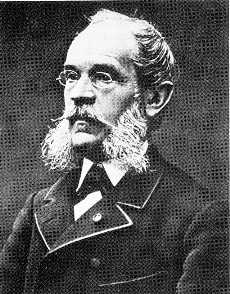Luxembourgers
|
Dennis Hastert • Michel Rodange • Red Faber | |
| Total population | |
|---|---|
| >430,000 | |
| Regions with significant populations | |
|
| |
| 45,000[2] | |
| 40,658[3][4] | |
| 30,000[2] | |
| 25,000 - 80,000[5] | |
| 15,596[6] | |
| 3,790[7] | |
| [5] | |
| Languages | |
| Luxembourgish, French, Standard German | |
| Religion | |
| Christianity (predominantly Roman Catholic, some Protestants) | |
| Related ethnic groups | |
| Germans, French, Belgians, Alsatians | |
Luxembourgers are a Germanic[8][9] ethnic group[10] native to Luxembourg sharing the culture of Luxembourg or being of Luxembourgish descent. Legally, Luxembourgers are citizens of the Grand Duchy of Luxembourg. The corresponding adjective is "Luxembourgish".[11][12]
Location
Most ethnic Luxembourgers live in the Grand Duchy of Luxembourg, a small country located in Europe between Germany, France, and Belgium, and are of Celtic and Germanic origin. Most speak Luxembourgish, as their native language, in addition to French and German. (Although Luxembourgish is quite similar to German, it is distinct enough to be considered a separate language and not merely a dialect of German.) Despite the rather small number of Luxembourgers, there is a relatively large diaspora, in Europe and elsewhere. Particularly, there are populations in the surrounding countries of Belgium, France, and Germany. For the most part, this is due to historic reasons, especially the three Partitions of Luxembourg, which led to former territories of Luxembourg being incorporated into each of the three surrounding countries.
There are also significant populations in the Americas, with the largest contingent being in the United States. However, many people of Luxembourgish descent live in Argentina and Brazil, to which large waves of Luxembourgers emigrated in the nineteenth century, as did Germans at the same time.[5] Others migrated to Hungary along with Germans during the first phase of German eastward settlement in the 12th century. Transylvanian Saxons are the descendents of these settlers.
See also
- Luxembourg Americans
- Luxembourg Brazilian
- Portuguese Luxembourger
Footnotes
- ↑ "Population par sexe et par nationalité (x 1 000) 1981, 1991, 2001 - 2014". Le portail des statistiques. Retrieved 2014-07-25.
- ↑ 2.0 2.1 "Luxembourgish". Ethnologue. 2005. Retrieved 2007-06-25.
- ↑ "Total US population by ancestry". United States Census Bureau. 2000. Retrieved 2007-06-25.
- ↑ "Luxembourgers in America". Library of Congress. 12 January 2006. Retrieved 2007-06-25.
- ↑ 5.0 5.1 5.2 Wey, Claude (2002). "L’émigration luxembourgeoise vers l’Argentine" (PDF) (in French). CDMH. Retrieved 2007-06-25.
- ↑ "Anzahl der Ausländer in Deutschland nach Herkunftsland (Stand: 31. Dezember 2014)".
- ↑ Statistics Canada. "2011 National Household Survey: Data tables". Retrieved 15 February 2014.
- ↑ Minahan 2000, p. 769
- ↑ Minahan 2000, p. 433
- ↑ Cole (2011), p. 246
- ↑ Oxford English Dictionary: Luxemburgisch, Luxembourgish; Oxford English Dictionary: Luxembourgeois
- ↑ European Union Interinstitutional Style Guide: List of countries, territories and currencies
Sources
- Minahan, James (2000). One Europe, many nations: a historical dictionary of European national groups. Greenwood Publishing Group. ISBN 0313309841. Retrieved May 25, 2013.
- Cole, Jeffrey (2011). Ethnic Groups Of Europe: An Encyclopedia. ABC-CLIO. ISBN 978-1598843026.










.jpg)
